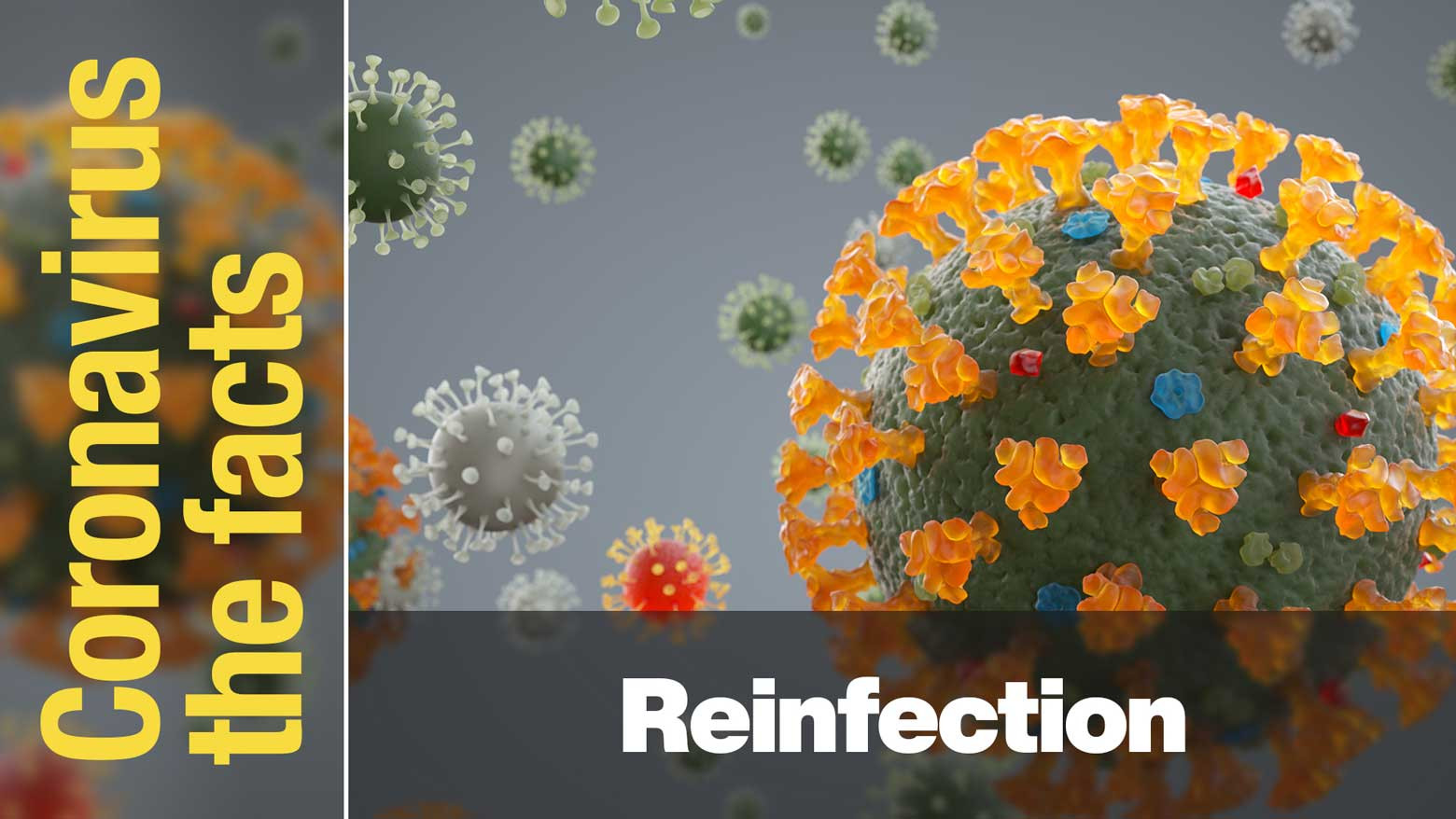This is part 54 of our coronavirus FAQ. Click here to read other installments: #Coronavirus the facts. Find the latest information and answers from experts on everything COVID-19.
Reported cases of reinfection
Cases of people who were infected, recovered, but were then infected again have been reported around the world since the summer. Many people may be wondering whether this really happens, or if vaccines work.
Researchers at the University of Hong Kong were the first to report a reinfection in August. They said they confirmed that a 33-year-old man was first infected in late March and then recovered, but contracted the virus for a second time more than four months later.
The researchers said the gene sequence of the viruses detected in the two infections partially differed, making this the world's first scientifically proven reinfection.
After the report from Hong Kong, other teams in the United States, India and elsewhere made similar announcements. The scientific journal “Nature” has published an article about reinfections, and there is growing interest in such cases.
We asked a virologist, Kitasato University Professor Nakayama Tetsuo, about whether people can really get reinfected with the new coronavirus. He said reinfections happen with various other viruses, so it is quite conceivable that people can get reinfected with the new coronavirus as well.
Light symptoms?
It is said that with many viruses, symptoms of reinfection are light. Sometimes, there are no symptoms at all.
For instance, the respiratory syncytial virus (RSV) is a virus which causes cold-like symptoms and can be more damaging when it infects young children, leading to pneumonia or more severe illness.
A research group led by Professor Nakayama, studied the amount of antibodies in 91 children who were infected with RSV. It is believed that when we get infected with viruses, antibodies are created in our bodies to expel foreign substances and that sufficient amounts of these antibodies can prevent infection.
The study found that when a one-year-old child is infected, only a small amount of antibodies are produced. It was discovered that the amount of antibodies increased after a repeated number of infections. The study showed that as the amount of antibodies in the body increases, the symptoms get lighter. In many cases, the infected person only had a runny nose.
On the other hand, in many cases of Dengue fever, a second infection causes more severe symptoms. Dengue fever is a mosquito-borne disease that can cause high fever and severe headache.
So, what about the new coronavirus? Professor Nakayama says there is a possibility that some people show no symptoms and are unaware that they have been reinfected. He says the situation must be watched carefully as the symptoms in reinfection are still unclear.
Can we prevent reinfections?
Professor Katayama Kazuhiko, another virologist at Kitasato University, says that it is difficult to prevent reinfections.
According to Katayama, the new coronavirus enters our body via the mucous membranes of the upper respiratory tract -- the nose and throat. Then, an antibody called Immunoglobulin A, or IgA, is formed on the mucous to fight off the incoming virus.
Katayama says, however, that the level of IgA tends to decline in a comparatively short period after the person is infected for the first time and produces antibodies. This is why he says we have little chance of blocking the coronavirus at the entrance to the body.
Katayama is planning to launch a research project to find out how much IgA is produced in the upper respiratory tract of an infected patient and how long it lasts. The project may shed light on the question of how frequently reinfection occurs.
This information is accurate as of Oct. 22, 2020.
